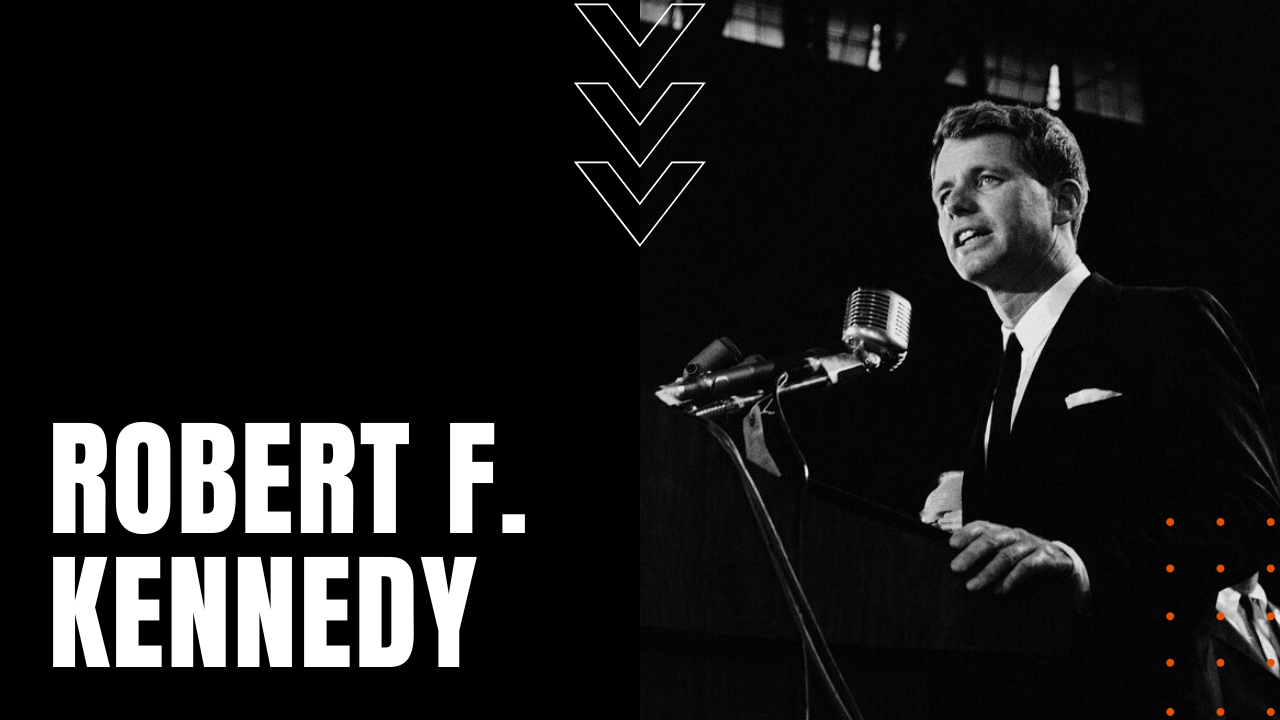Robert F. Kennedy

Born in 1925 Brookline Massachusetts, the seventh of nine children born to Joseph and Rose Kennedy, after serving in the Navy during World War Two, Robert Kennedy graduated from both Harvard University and the University of Virginia School of Law before joining the U.S. Department of Justice as a working attorney.
Helps Older Brother Win a U.S. Senate Seat
After managing his brother John’s successful 1952 campaign for the U.S. Senate, Robert worked under anticommunist crusader, Senator Joseph McCarthy, gaining national attention while investigating corruption in the International Brotherhood of Teamsters led by Jimmy Hoffa. After JFK won the office of president in 1960, Robert was named the 64th attorney general to the United States, where he continued his fight against corruption in labor unions, organized crime and civil rights for African Americans,
Strong Civil Rights Proponent
where in 1962 he sent thousands of federal troops to Oxford Mississippi to enforce a U.S. Supreme Court mandate allowing African Americans to attend the University of Mississippi. Working closely with JFK and later President Lyndon Johnson, Robert helped pass the landmark Civil Rights Act of 1964, which outlawed racial discrimination in employment, public facilities and voting, and prior to JFK’s tragic 1963 assassination in Dallas, Robert became JFK’s closest political advisor during the 1962 Cuban Missile Crisis, before winning election to the U.S. Senate in 1965.
Elected to the U.S. Senate
As a senator from the state of New York, Robert continued his push for African American civil rights and other social justice issues, including an end to the Vietnam War. Urged by his supporters to run for president, on March 16th, 1968, Robert announced his bid for the White House, declaring “I do not run for the presidency merely to oppose any man, but to propose new policies.”
A Tragic End
On June the 5th of that same year, after winning the California Democratic primary, Robert Kennedy was assassinated at 42 years of age, shot in a Los Angeles hotel by a Palestinian extremist. Following Robert’s star-studded funeral service at Manhattan’s St. Patrick’s Cathedral, 700 mourners boarded a 21-car train bound for Arlington National Cemetery near Washington, D.C., sparking an emotional and nationally-cathartic eight-hour train ride, which inspired one of the most unique cross pollinations of grief for those on the train and average Americans who lined the tracks in tribute to yet another fallen icon, making the life of Robert F. Kennedy one of public service and sacrifice to an American nation.
